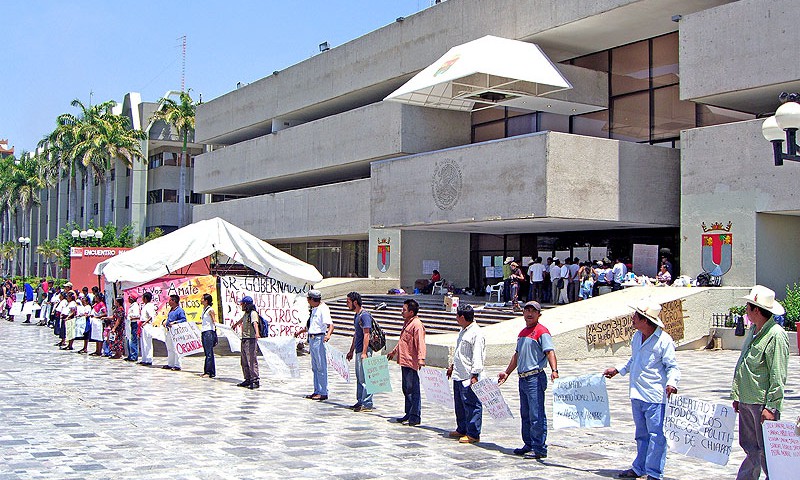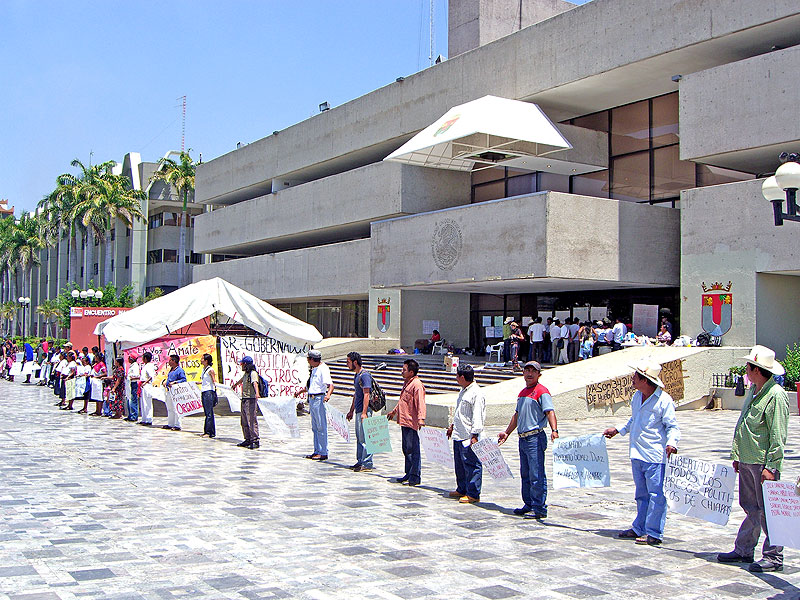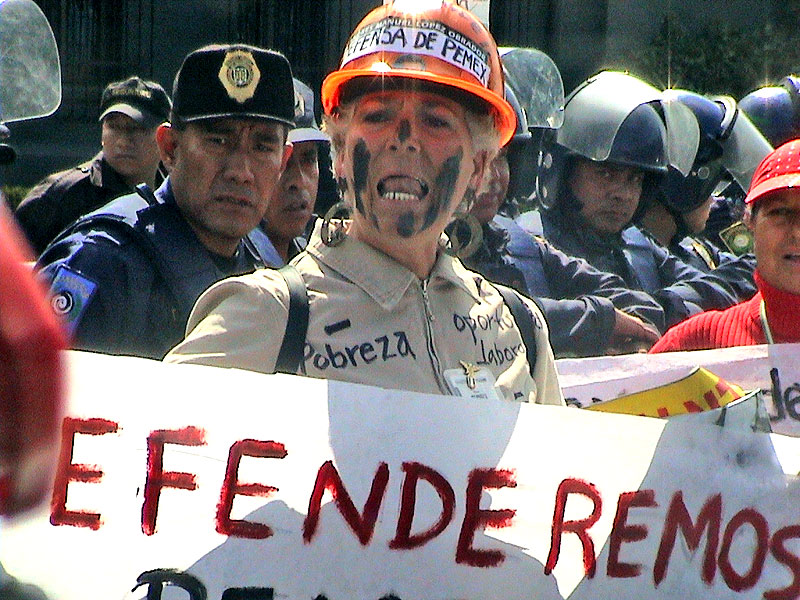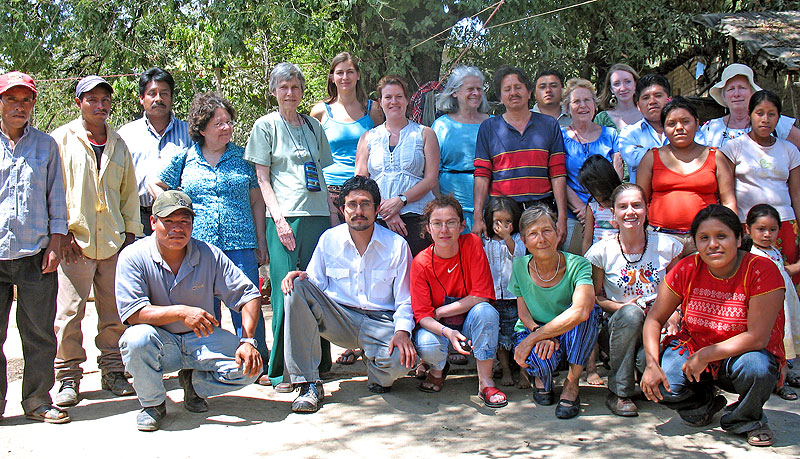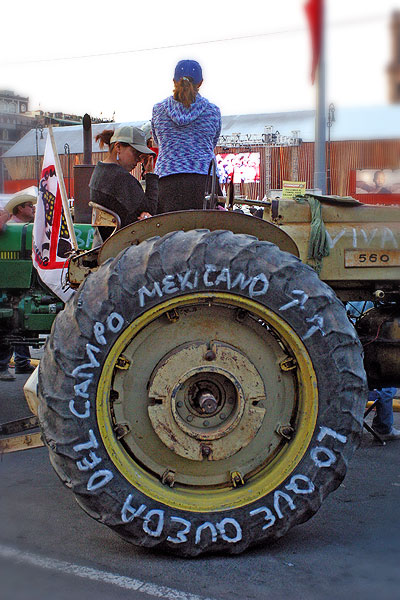
ANALYSIS: Mexico 2008, Turbulence on the horizon?
29/02/2008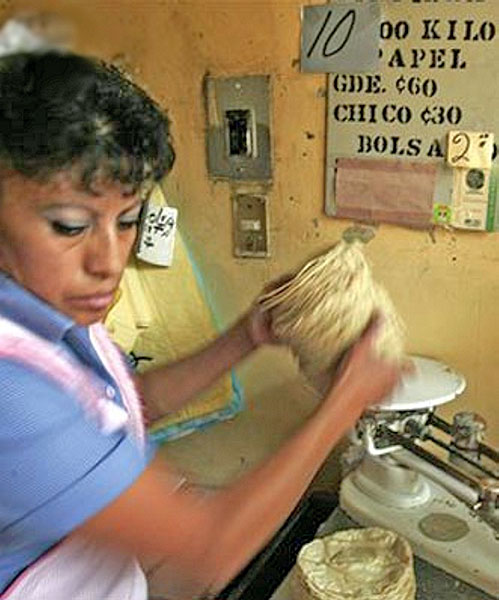
ANALYSIS: Mexico – Increase in cost of living and poverty pose major concerns
29/08/2008Between February and April, a historic protest was conducted by detainees who revindicated their status as political prisoners and asked for their immediate release. The protest was held in various prisons in Chiapas and one in Tabasco, and took the form of an “indefinite” hunger strike or fast (until the prisoners regained their freedom). It was backed by both relatives of the detainees and numerous social organizations, who supported the detainees through diverse actions. Expressions of solidarity also arrived from other Mexican states and abroad.
The protest began on February 12, when Zacario Hernández Hernández initiated an indefinite hunger strike to demand his freedom. A member of the Catholic organization “Pueblo Creyente” [Believing People], Hernández Hernández had been in detention since 2003 in Center for Social Readaptation (CERESO) #14 in Cintalapa, known as “El Amate. Two others detained in the same case (that of “Tres Cruces”) joined him in fasting and prayer. On March 25, both detainees joined the hunger strike.
Supporting these demands, the Pueblo Creyente of the Diocese of San Cristóbal de Las Casas mobilized in a pilgrimage of thousands who called for the liberation of all those who were unfairly incarcerated.
Between February 25 and 26, another 13 detainees from CERESO #14, seven of whom belonged to the organization the “Voice of El Amate” (follower of The Other Campaign), four self-identified Zapatista militants, and one from Independent Coordination of Indigenous and Campesino Organizations (CIOAC, Central Independiente Obrera Agrícola y Campesina) made the decision to join the hunger strike. Another two detainees from the “Voice of El Amate” and one from CIOAC began a fast.
The protest spread to other Chiapas prisons between March 4 and 10: in CERESO #5 in San Cristóbal de Las Casas, nine detainees and members of the organization the “Voice of Los Llanos,” also a follower of The Other Campaign, began a hunger strike, while six other members, together with a female detainee from the community of Busiljá, began fasting. In CERESO #17 in Playas de Catazajá, in the state’s north, eight detainees – among them Zapatista militants and members of the Democratic Revolution Party (PRD, Partido de la Revolución Democrática – also undertook a hunger strike. On March 24, two detainees in the Municipal Public Prison of Tacotalpa, Tabasco, residents of the Northern Zone of Chiapas and recognized as Zapatista militants, began fasting and prayer.
The majority of the protesting detainees were indigenous, predominantly of Tseltal or Tsotsil origin. Some had already been jailed for 10 years, and all reported that because of their political activities they were arbitrarily detained on fabricated charges, in violation of their right to judicial guarantees.
The first results of the protest came with the liberation of Zacario Hernández Hernández – already on his 35th day of hunger strike – together with four other detainees of “El Amate.” The Chiapas government declared that “in Chiapas no one is persecuted for their political beliefs, and for those who have been in the past, their case files will be examined to corroborate or refute their alleged guilt.(1)” Subsequently, the government stated that 360 case files would be reviewed by the Interinstitutional Working Group [Mesa Interinstitucional], according to the dictates of the Suspended Sentence Law.(2)
To coincide with the protest within the prison walls, on March 24 relatives and friends of hunger-striking detainees began a sit-in at the entry to the Chiapas State Government Offices in Tuxtla Gutiérrez, reiterating the call for their freedom. They vowed to maintain the sit-in until all prisoners were released.
Following a public event within the government offices on March 31, 2008, 137 prisoners were released from various Chiapas penitentiaries. Thirty of these had been participating in the hunger strike or fast in CERESOs #5, #14 and #17, while 13 remained behind bars on hunger strike, and two continued their fast.
Those who were freed declared in a press release, “We are political prisoners and prisoners of conscience as a result of the government and its unjust laws which have charged us with fabricated crimes. We were charged with these crimes in response to our organized struggle for the needs of our people.”
Samuel Ruiz García, Bishop Emeritus of San Cristóbal de Las Casas, published a letter on April 4 in which he expressed his concern for the health of the hunger strikers. As a result, the remaining detainees suspended their protest and the sit-in was removed. As President of the Fray Bartolome de Las Casas Human Rights Center (Frayba), Samuel Ruiz affirmed that the Center would accompany the revision of case files that had been promised by the state government.
On April 24, the two Chiapas residents detained in Tacotalpa (Tabasco) – Ángel Concepción Pérez Gutiérrez and Francisco Pérez Vázquez – were moved to Chiapas and are currently being detained in CERESO #12 in Yajalón. They had initiated a second protest, a hunger strike, on April 21. The Chiapas State Government made the commitment of reviewing their case which, since their detention on July 9, 1996, has been riddled with irregularities.
In an interview with SIPAZ, the lawyer Diego Cadenas Gordillo, Director of Defense at Frayba, highlighted serious faults in the justice system, which permit arbitrary and/or politically motivated detentions. These include the defendant’s need to be attended by a trained lawyer and not merely a person whom they trust (as stated in the Mexican Constitution); the lack of an interpreter for those whose mother tongue is not Spanish, as in the case of many indigenous defendants; and the need to eliminate the “principle of immediacy,” which attributes greater evidentiary value to the defendant’s first testimony, despite the fact that many have reported that they suffered torture at that time.
In general, as has been stated by several human rights organizations such as the Inter-American Commission on Human Rights, the lack of independence and impartiality in the legal system creates inaccuracies, abuses and manipulations in its application. The Chiapas State Government has yet to offer concrete proposals to remedy these grave failings.
………

